
They sleep all day, chase shadows (and noisy toys) all night long and manage to get some food in between. Some even come home high on questionable herbs. Felines have always been a source of fascination for mankind, were it not so, there would not be so many (rather accurate) sayings about cats.
Robet J Vogel said “A dog is a mans best friend, a cat is a cats best friend”, he definitely owned a cat in his life. Ellen Perry Berkley is clearly in the know about cats and is quoted as saying “As every cat owner knows, nobody owns a cat”. From the book How To Be Decadent George Mikes writes, “You can keep a dog; but it is the cat who keeps people, because cats find humans useful domestic animals”. Yep he knows about cats too. George F. Will understands cats perfectly as shown in his quote of “the phrase 'domestic cat' is an oxymoron.
Cats have a unique history with humans, we did not 'domesticate' them the way we did with dogs. We had a use for dogs, we needed dogs to help with a variety of tasks including protection, herding and hunting. We selectively bred dogs for the characteristics we wanted in them - sociability, herding or sniffing skills.
Felines on the other hand appeared roughly 12,000 years ago when humans started being more agricultural based and less hunting nomadic[1]. They invited themselves, our agricultural growth brought more vermin and rodents and the cats came to feed on rodents and vermin - not to be our friends, we were a food source. They essentially domesticated themselves at first. This could explain their god like attitude at times. Unlike dogs we did not start to selectively breed them for traits we wanted until a few hundred years ago.
Regardless how and why – cats are here and are the second most popular pet in North America. We write memorable quotes about them, we let them run loose in our neighbourhoods (when it is illegal for dogs to do so) and they have taken over not only our homes, but the internet too.
Most kitties are odd creatures with their peculiarities and quirks. Yet, for all their spit and fire and mysterious ways they have yet to conquer ageing and most pet owners will find themselves one day caring for an older more geriatric feline. Despite their wildness, their independence, their strong will and stubborn ways, they will need help living a high quality life as they age.
Myself, I am not sure when it happened. One day my cat, Boscoe, was a middle-aged kitty and now, he is ... not so middle-aged. A recent vet visit reminded me just how old he was getting (16.5 years old), I even denied it till I did the math.
Where have the years gone? Did he really age before my eyes and I did not see it? Why am I surprised that a cat can be so stealthy even when ageing.? What can I do for him now to make him happy and healthy?
I have been under the impression that dry cat food is the better choice to give a cat. It was convenient for me as the trough-filler, he ate it with no complaints and till recently seemed like the perfect food. Apparently I was misled. This led to a flurry of questions directed at my vet.

Many if not most dry cat foods are too high in grain based carbohydrates and are highly processed, some sprayed with fats to make it more palatable for the cats. Some vets believe it is connected with causing health problems when fed a lower quality dry food is fed exclusively. It's also, on a nutritional level, unnatural diet for a feline due to the high grain carbohydrates. [2]
Changing foods can cause indigestion issues so do it slowly. It took two weeks to move Boscoe off dry foods and into canned foods - he likes chicken, turkey and sometimes salmon. I do feed him a senior cat advertised food, but have been told by the vet that there is really very little nutritional difference between senior and adult cat canned foods, often it just boils down to the cat's personal preference.
I had to change his feeding schedule as well, no longer did he have a 24 hour filled bowl available to him. Canned foods turn quickly sitting out in a dish and Boscoe is a intermittent eater and notorious nibbler, I started giving him smaller portions when he wanted food and I found he likes to have anywhere from four to six small servings - basically the whole can, just spread out over the day to keep it fresh. I also have to add water to the foods that have that 'gluey' textured gravy.
Nutrition is important in an healthy or sick cat - it gives the cat the sources it needs to either fight infection, build cells and other bodily functions and to feel good. If you have a picky eater or he doesn't seem to eat enough you may need to use vitamin supplements that your vet can tell you about. Once I got Boscoe's nausea under control, his appetite returned with a ferociousness.
The only real issues I ever had with Boscoe was his water intake. He simply refuses to drink out of anything that resembles a bowl. He will try to help himself to your coffee or tea even a glass of
 water, but if you put it on the floor he doesn't want it. I raised it on a table, still wouldn't drink. He wanted what we were drinking. Then he discovered running water, problem solved. He loved drinking out of taps that either dripped or ran lightly with minimum amount of 'splash' – even in a compromise he was picky and stubborn.
water, but if you put it on the floor he doesn't want it. I raised it on a table, still wouldn't drink. He wanted what we were drinking. Then he discovered running water, problem solved. He loved drinking out of taps that either dripped or ran lightly with minimum amount of 'splash' – even in a compromise he was picky and stubborn.
As he aged he started to drink less water for no reason other than he was older and didn't want to make the trip to the bathroom or the kitchen. Thinking it was a mobility or jumping issue, I had ramps installed to the sink and tub. He sat there and waited for one of us to walk by to lift him up to the sink so he can drink. After a while of this, we started picking him up and putting him in the tub (was a much shorter jump than the sinks) with the faucet running lightly. Eventually he started using the tub.
But he was still eating dry foods, which offer no significant moisture and as he started to drink less and less often. He was at risk for dehydration, a real risk for older cats and cats that are thin, of which Boscoe was both. Switching him to a good quality (based on ingredients not brand name) canned food took care of this risk as wet foods are much higher in moisture content and I also tend to add a little water to it.
I have been an incredibly lucky cat owner when it comes to Boscoe. I had hardly any problems with him the entire 15 years he has been with me - health or behaviour wise. But soon after some of the health issues and changes, he ceased to use his litter box as well as he used to.
He does still try, it just doesn't run as smoothly as it did (pun intended). He often misses the box entirely by squatting over too close to the edge of the box and a few times, when he was plagued with diarrhea he flat-out didn't make it in time. The vet has assured me that this is quite common in older cats and can have many underlying causes - not always health related though.
 Some research and I discovered a plethora of ideas to correct this behaviour or attempt to anyway - cats can be so infuriatingly stubborn. Once health issues were ruled out as a cause I approached it as a behavioural issue - maybe something scared him when he was in it and no longer wants to go in it, maybe he dislikes the box for whatever reason - too small, too high, too smelly (even a scrubbed clean box to a cat is not 'clean - they have smell senses that are much more sensitive).
Some research and I discovered a plethora of ideas to correct this behaviour or attempt to anyway - cats can be so infuriatingly stubborn. Once health issues were ruled out as a cause I approached it as a behavioural issue - maybe something scared him when he was in it and no longer wants to go in it, maybe he dislikes the box for whatever reason - too small, too high, too smelly (even a scrubbed clean box to a cat is not 'clean - they have smell senses that are much more sensitive).
With an older cat you just might find yourself congratulating and fawning over your cat on a 'beautiful poop' or making it to the box - and the joy is genuine let me tell you.
Even though your older cat isn't as agile as they once were, might not jump as high complete with body twists and may completely ignore the cat tree - playing with them and getting them active even for a short period of time is very good for them.

Boscoe would bat around a fluffy mylar ball for a few minutes then get bored and lay down. I would dangle some feathered mouse on a string in front of him and get the look that says, 'I ain't dumb Mom, I known it's you .. stop it'. Try as I might I couldn't get him re-interested in playing. He spent the bulk of his day sleeping, when he was awake it was sitting on a couch or laying down beside someone, he was not using his muscles at all.
He was running the risk of developing atrophied muscles, which would make getting old even worse than it already was. I needed to get him moving again, it was time my cat learned the art of walking on a leash. I put the harness thingy on him (so it wasn't like a choke chain seen on some dogs) and he promptly fell to the ground rolling around and being generally difficult about the idea. Eventually we just took walks together down the hallway of our building - back and forth - when he finished he would head back to the home door and either eat, poop or sleep for a while.
Play time or exercise time is also good for his mental health as well as his physical health. All too often older cats find themselves left out of family activities and this can cause depression, which will only lead to more problems down the road.
Playing with them, exercising them or even giving them a massage allows them to spend time with you and not feel left out.
Due to several reasons cats can't always groom themselves as well as they use to and, though they would never ask, they need help with it sometimes. Cats are notoriously and fastidious clean animals who groom themselves a number of times throughout the day.
Give them a helping hand when it's needed. Just because they grow old does not mean brushing and bathing have to stop. It quite likely very stressful for them to be dirty, have a dirty box or dirty sleeping area.

Boscoe will not take a bath like a nice cat ... it's entirely too stressful for him ... but he still needs cleaning now and then, so I use a wet wash cloth all over him, massaging him with it, while rubbing his behind and behind his legs to make sure he is clean and free of either urine or excrement. He rarely needs it, but he does enjoy it, or perhaps its the extra attention to a need he can't do himself.
Leaving urine or waste on his fur or skin not only smells over time, but can cause skin problems and infections.
Boscoe has gotten skinnier with his recent health issues and when I brush him I let him dictate the brushing by just holding it up and letting him rub his face and body on it.
Some cats age very well and have very little changes in either behaviour or personality, but for those who do not age as well and develop illnesses such as arthritis, diabetes, hyperthyroidism and even sensitive teeth may experience changes in both behaviour and personality due to the disease and not necessarily due to brain damage or changes.
When humans experience pain and discomfort our attitudes change we might be more testy or mean, we might sleep more or want to be left alone – it is the same for cats. Illnesses and chronic conditions can make them a little miserable feeling, sometimes confused or forgetful and not overly eager to do much of what they use to.

Arthritis can limit mobility and affect not just doing the normal activities of felines, but also enjoying activities they use to enjoy such as chasing a laser beam or treating the living room like a personal playground. Obesity can add stress to joints and organs, losing their hearing means they can't respond to your voice as they once did, blindness likely will lead to needing more help with day-to-day activities, diarrhea, constipation and other intestinal problems can lead to problems with the litter box.
Only you know when your cat is behaving oddly or is just not right - beyond their already quirky selves. I'm not suggesting running to the vet because your cat slept more than usual or simply wanted nothing to do with his toy. But I am suggesting you make note of these changes, for how long and how severe they seem, any concerns call your vet and ask.
In Boscoes case he just started sleeping a little more often, when he was awake he was a little anxious of being alone, he moved slower, woke up slower - I contributed these to the symptoms of ageing and not illness. These grew into physical problems like diarrhea, loss of appetite and weight loss. It was when he lost noticeable weight, looked 'dull' and just wasn't himself that I took him to the vet. In hindsight I should have taken him in sooner.
Unless you are lucky, brushed your cats teeth regularly, fed him mostly dry over can and made use of teeth cleaning toys and treats chances are high that your older cats teeth are not in prime condition, mainly the tartar on the teeth and the health of the gums. Cats can get cavities, but it is not as common as one would think.
Teeth that hurt can cause the cat to not want to eat or drink, leading to chronic dehydration, which may contribute to kidney disease, hunger, weakness and generally just not getting their needed nutrients.
As cats (and us humans too) age our kidneys start to shrink and filter less efficiently. Veterinarians are not sure why this is the case - if it's related to food, dehydration or the over use of vaccinations[3], but a fair amount of older cats suffer from chronic kidney disease.
Kidneys are important in the flushing of wastes and toxins from the blood and this filter system does not rebuild or regrow like the liver does. Wear and tear, age and other types of damage can cause a kidney to shrink leaving less filtration for the cleaning of blood and these toxins, salts and wastes can build up and make your cat quite sick.
Thyroid are glands that regulate the speed of all your cat's body metabolism processes by producing a hormone. When it produces to much of this hormone it is a hyper thyroid.[4] This is not a common condition in dogs and is viewed as a 'old cat disease'. Just like in humans it tends to affect females more.
The same in cats is the same in humans, though with cats hypertension is usually seen along with hyperthyroidism and kidney disease. High blood pressure slowly destroys small blood vessels, the heart, kidney and eyes being particularly susceptible[5].
Tends to strike the overweight cat, that is mature but not geriatric - then again that is not written in stone and a young thin cat can develop diabetes too. Management of the disease is by medicine (insulin) and diet, as well as slow weight loss[6].
As cats age, just like humans, cancer becomes more of a risk. Truthfully, there are treatments for the various cancers out there - the real question you have to ask yourself is 'should I put the cat through it or will he survive it'.
Heart and blood circulatory issues, liver diseases and bladder issues are a little less commonly seen, but still a risk and something to watch out for. Remember that cats are good at covering their tracks and looking quite healthy when in fact they are not, the behaviour changes may be subtle.
Vet visits are important. I am one of those people who only go to the doctor when I am sick. That attitude flowed over to my cat, Boscoe. He seen a vet when he was 2 years old and never went back till he was 16 years old and having digestion issues.

I learned that he can be quite sick and not show it in behaviour or physically and when it comes to a head, you end up discovering he had many things wrong with him ... kidney disease, hyperthyroidism and high blood pressure ... sometimes these three conditions, in particular, are referred to as the medical trinity.
Chances are if your cat has one of these conditions, the other two are not far behind. Vets are not sure why they seem to come together. it's not a guarantee, but the chances and likelihood of the other two affecting your cat greatly increase.
Visiting your veterinarian at least once a year, preferably twice a year - particularly if ill. I understand money is sometimes a issue but by going more regularly you allow the vet to create a few baselines to compare to future readings (see how far off they are compared to older ones taken when the cat was healthy).
Regular vet visits make growing old more comfortable, keeps you on top of any expensive conditions that could develop and quite frankly, our independent, sassy furry friends deserve it.
Boscoe's prognosis is positive looking despite the fact that he has Addison's Disease (a not so common condition for cats) which is a problem with the adrenal gland production and with hormone medication (pill form) and proper monitoring I can have four maybe five more years with him.
If for any reason you have to surrender or give away your cat to a shelter, you should know that many older cats do not get adopted easily. Older cats are just as great as younger cats, even with some of the health problems that plague them, the video below is an 'argument' for why older cats are better than kittens. I am a huge supporter of older cat adoptions.
Save a life ... don't line some breeders wallet!
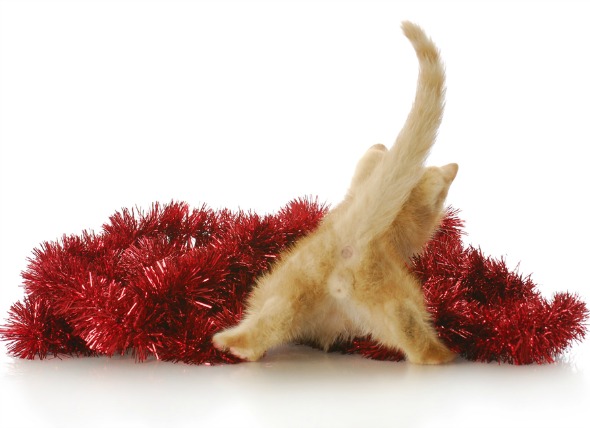 Colonic or Rectal Inflammation in Cats
Colitis and Proctitis in Cats
Histiocytic ulcerat
Colonic or Rectal Inflammation in Cats
Colitis and Proctitis in Cats
Histiocytic ulcerat
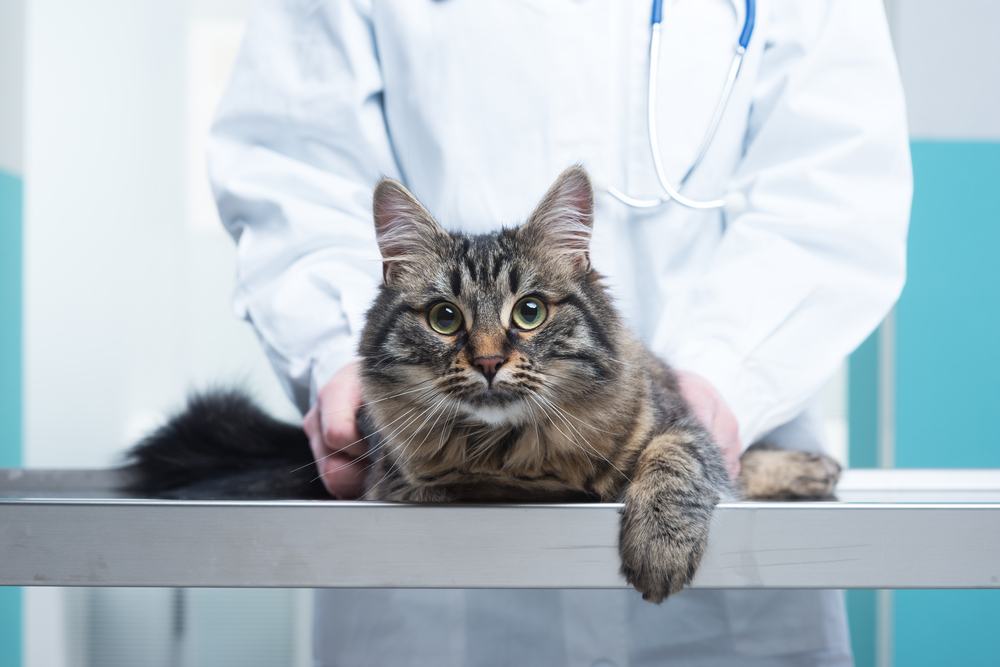 Bleeding Under the Skin of Cats
Petechia, Ecchymosis, and Bruising in Cats
Bruisi
Bleeding Under the Skin of Cats
Petechia, Ecchymosis, and Bruising in Cats
Bruisi
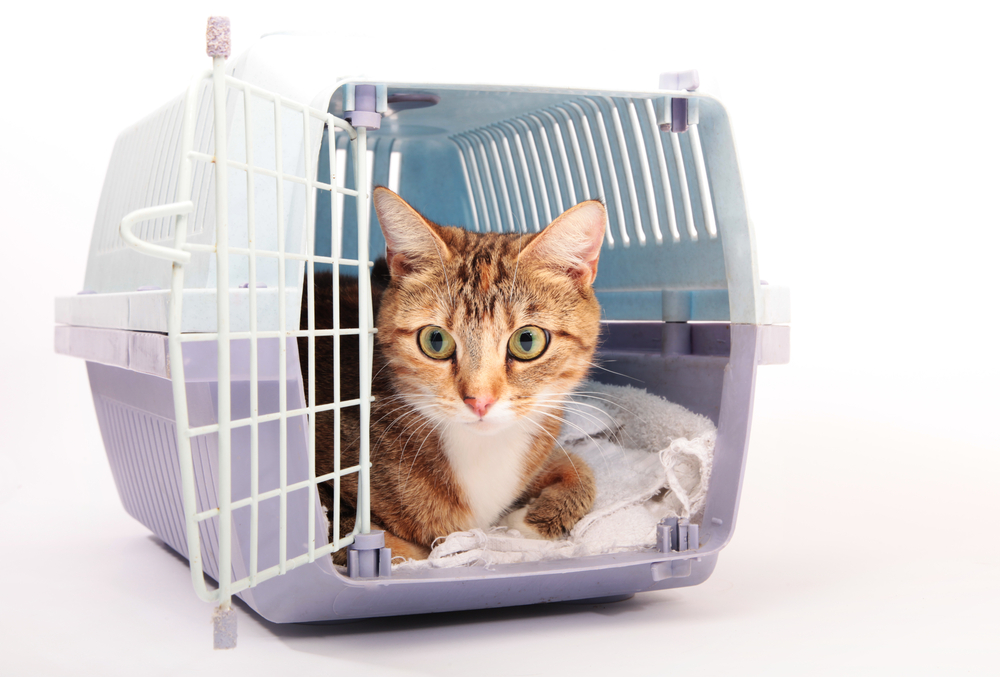 Cats and Motion Sickness
Gastrointestinal Distress Related to Motion in Cats
&nbs
Cats and Motion Sickness
Gastrointestinal Distress Related to Motion in Cats
&nbs
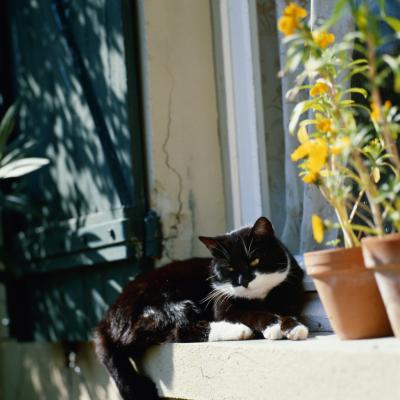 How to Keep Your Cat from Chewing House Plants
How to Keep Your Cat from Chewing House Plants
How to Keep Your Cat from Chewing House Plants
How to Keep Your Cat from Chewing House Plants
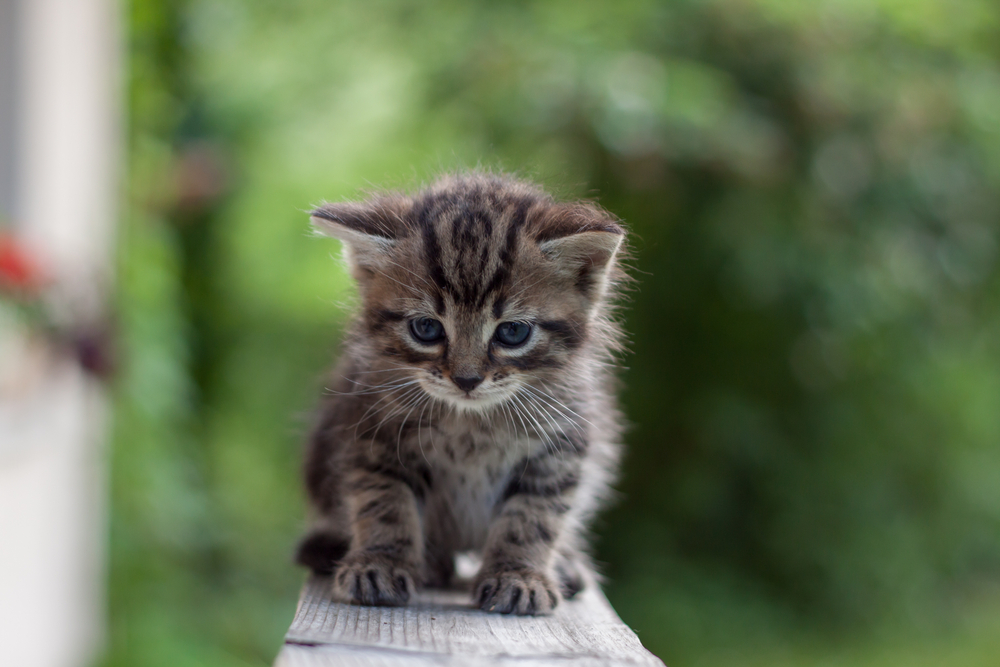 Hernia (Hiatal) in Cats
Hiatal Hernia in Cats
A hernia occurs when one pa
Hernia (Hiatal) in Cats
Hiatal Hernia in Cats
A hernia occurs when one pa
Copyright © 2005-2016 Pet Information All Rights Reserved
Contact us: www162date@outlook.com